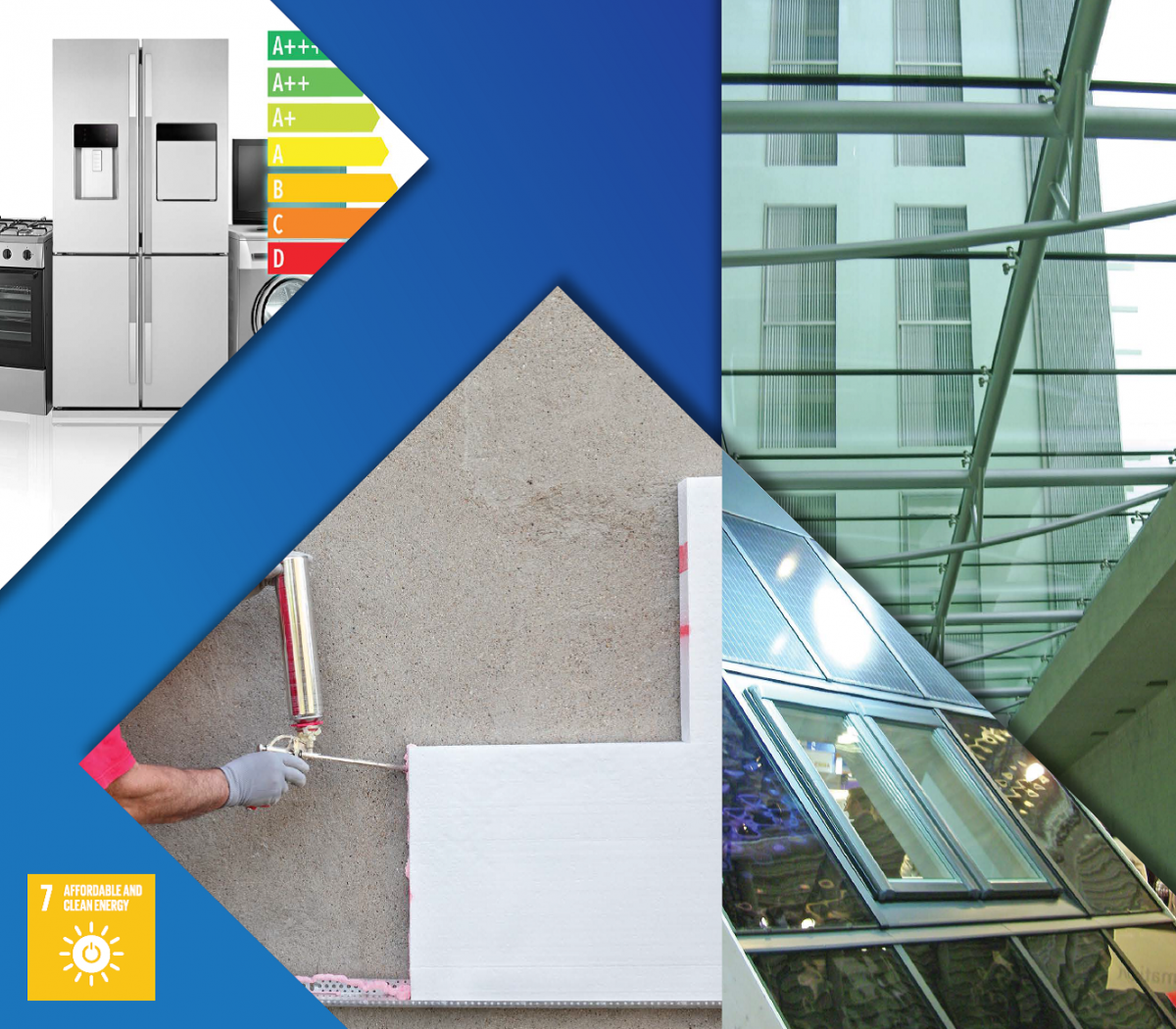Up-scaling Energy Efficiency in the residential and services sectors in the Arab Region, UNDA

Background
Rapidly expanding populations, increasing rates of urbanization, economic and industrial expansion, and rising standards of living associated with aspirations for greater comfort, exacerbated by low energy prices due to widespread energy subsidies at the end-user levels, have largely contributed to a rapidly rising demand for energy in the Arab region, while very limited efforts are deployed to improve energy efficiency.
Analysis of energy consumption patterns in the region shows that the residential and services sectors represent an important part of the total consumption of energy with a share of at least one third of all the total primary energy consumed, and over 60% of the electrical energy consumption, of which the domestic sector represents about 70%. Furthermore, all forecasts indicate that electricity demand is set to rise drastically in the near future.
In the absence of serious corrective measures, this will lead to a loss in revenues, slowing down of development efforts, increasing vulnerability to international energy price fluctuations and a weakened energy situation across the region. Therefore, there is a need to operate a change of scale in achieving energy efficiency in the existing building stock (residential and non-residential) and appliances and commercial equipment.
Consequently, the region is in urgent need of energy efficiency programs and projects in the residential and services sectors at a pace that can match the growth rates recorded in their energy services demands.
A UNDA project as a starting point for a Regional Initiative
The objective of the ESCWA United Nations Development Account (UNDA) project on “Up-scaling Energy Efficiency in the residential and services sectors in the Arab Region” is to substantially enhance the capacity of ESCWA Member States in improving and optimizing energy efficiency in the building sector and up-scaling energy efficiency programs in the existing residential and non-residential building stock.
The proposed project is intended to pave the way for a regional initiative aiming at up-scaling energy efficiency programs and measures targeting the existing building stock in the region, whereby implemented activities will be made available to three Member Countries that are representative of the ESCWA member countries sub regions: One North African country (Tunisia), one Middle Eastern country (Jordan) and one country from the Gulf Cooperation Council (Kuwait).
These three countries are selected based on their willingness to participate in this project and mobilize their concerned institutions and needed human resources to complete the planned tasks. The United Nations Development Account (UNDA) project will not only benefit the three countries where it will be implemented, but it will serve to provide stronger bases for the funding and implementation of a full-fledged regional initiative that will cover all ESCWA member countries.
Project Main Objectives
The ESCWA United Nations Development Account (UNDA) project is perfectly in line with Sustainable Development Goal 7 of the Agenda 2030; “Ensure access to affordable, reliable, sustainable and modern energy for all”, and in particular target 7.2; “By 2030, double the global rate of improvement in energy efficiency”, but also target 7.1 “By 2030, ensure universal access to affordable, reliable and modern energy services”, since up - scaling energy efficiency in the building sector will free up energy resources that can be used to extend energy services to other potential end users. Furthermore, up - scaling energy efficiency in the residential sector will result in substantially lower energy consumption, thus lower energy bills, allowing access to additional energy services by vulnerable segments of households, and avoiding the risk of energy poverty for these segments, in case of foreseeable increase in energy prices in the region.
Up scaling Energy Efficiency programmes and projects in the residential and services sectors in ESCWA Member Countries will contribute to climate change mitigation efforts in the region, and therefore support Goal 13 that calls for “taking urgent action to combat climate change and its impacts” and particularly Target 13.2;“Integrating climate change measures into national policies, strategies and planning”, and Target 13.3; “Improve education, awareness-raising, and human and institutional capacity on climate change mitigation, adaptation, impact reduction and early warning”.
This project also aligns with the Sustainable Energy for All (SEforALL) goal that calls for doubling the global rate of improvement in energy efficiency, and will assist Member States, through a regional approach, in building their capacities to meet the objectives of the energy related Agenda 2030 development goals and those of the Sustainable Energy for All (SEforALL) in the building sector.
Seminars and training workshops will be conducted throughout the project time line to provide necessary background information, define the methodologies and offer assistance to national experts and policy makers for the implementation of the project’s activities.
Project’s Expected Accomplishments:
The ESCWA United Nations Development Account (UNDA) project will contribute to setting up the stage for the following:
- Reinforcing the security and sustainability of the energy systems in the respective countries by improving energy efficiency of the residential and services sectors, thus reducing the energy bill for both end users and states and mitigating the impact of climate change, in full alignment with Sustainable Development Goal 7, other energy related sustainable goals of the Agenda 2030 and Sustainable Energy for All (SEforALL).
- Alleviating energy vulnerability of the less fortunate and most vulnerable groups of women and men by reducing energy costs through redeploying subsidies to fund greater efficiency and lower consumption of energy.
- Increasing regional and local integration of goods and services associated with energy efficiency to foster new employment opportunities and upscale energy efficiency programs and projects targeting the residential and services sectors.





